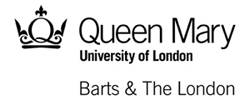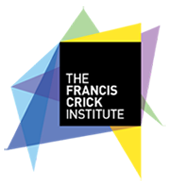Clinical Research Training Fellows will follow a three-year version of the CRUK CoL PhD training programme, providing a firm foundation for clinicians with a future academic career path in mind.
Applications are now closed for the 2019 postgraduate training programme.
Although based in their primary supervisor’s research group, Fellows will have the opportunity to work across the centre, for example when accessing the Centre’s infrastructure cores, or carrying out short research placements.
The three-year PhD training programme for clinicians will begin with an induction programme introducing fellows to the Centre, the training programme, their university of registration and to carrying out a PhD. Trainees will submit reports, give talks and meet with their thesis committees at specific points on the programme and be able to access a vast range of scientific and transferable skills training via the Centre partners and beyond. Early on in the programme, each trainee will work with their supervisors to develop a customised training plan, tailored to the trainee’s background and project requirements, that includes multi-disciplinary skills training and may include a short research placement(s) with other groups in the centre.
- Supervision, PhD registration and fellowships
Clinical Research Training Fellows (CRTFs) following the CRUK CoL PhD training programme will be based in their primary supervisor’s research group, and have a secondary supervisor from one of the Centre’s other institutions. Fellows will register for their PhD at the primary supervisor’s university, or the secondary supervisor’s university if the primary supervisor is based at the Crick. All fellows will have a three-person thesis committee made up of Centre faculty, that they will meet with regularly to discuss progress and receive guidance and advice. A practising clinician will also provide additional career mentorship and support. Fellows are enrolled in a full-time PhD programme for three years, so there is limited participation in clinical activities.
Successful candidates will receive a salary commensurate with their current experience, paid on the clinical academic scale.
- Eligibility
We are looking for talented and motivated clinicians who are passionate about research, have a strong academic track record and hold full GMC registration or equivalent. Due to funding body restrictions only UK / EU nationals are eligible to apply for this programme.
Applicants for this competitive programme are expected to have:
- a medical or dental degree
- previous wet or dry lab research experience (desirable)
- continuous full General Medical Council (GMC) registration or equivalent
Applications are welcomed from:
- candidates from all medical and surgical specialties
- candidates with a background in dentistry
Applicants should be in a training position (not necessarily with a training number). Candidates at consultant grade will not be considered.
Projects:
Project 1: Imaging PD-L1 expression and tumour metabolism for stratification, treatment response and toxicity in cancer
- Primary Supervisor: Prof Gary Cook, Cancer Imaging, School of Biomedical Engineering and Imaging Sciences, King's College London
- Secondary Supervisor: Prof Peter Szlozarek, Centre for Molecular Oncology, Barts Cancer Institute, QMUL
Project 2: Development of immune therapy combinations in urology cancers
- Primary Supervisor: Prof Thomas Powles, Centre for Experimental Cancer Medicine, Barts Cancer Institute, QMUL
- Secondary Supervisor: Dr Axel Bex, UCL
Project 3: Tumour heterogeneity and tumour microenvironment in lung cancers
- Primary Supervisor: Dr Mariam Jamal- Hanjani, UCL Cancer Institute and Prof Charles Swanton, The Francis Crick Institute
- Secondary Supervisors: Prof Karibaan Hodivala-Dilke, Barts Cancer Institute, QMUL and Dr David Moore, UCL Cancer Institute
Project 4: Investigating ADI-PEG20 metabolic therapy to target improved anti-cancer immune responses and outcomes from chimeric antigen receptor T-cell therapy (CART)
- Primary Supervisor: Dr Bela Wrench, Centre for Haemato-Oncology and Prof Peter Szlozarek Tumour Biology, Barts Cancer Institute, QMUL
- Secondary Supervisor: Prof Martin Pule, Dept of Haematology, UCLH
Project 5: Evolutionary trajectories of leukaemia development and therapy resistance in children
- Primary Supervisor: Prof Tariq Enver, Department of Cancer Biology, UCL
- Secondary Supervisor: Dr Kathleen Curtius, Evolution and Cancer Laboratory, Barts Cancer Institute, QMUL
Project 6: Causes and consequences of copy number alterations for colorectal cancer evolution
- Primary Supervisor: Prof Trevor Graham, Evolution and Cancer Laboratory, Barts Cancer Institute, QMUL Secondary
- Supervisor: Prof John Bridgewater, UCL Cancer Institute
 Close
Close





